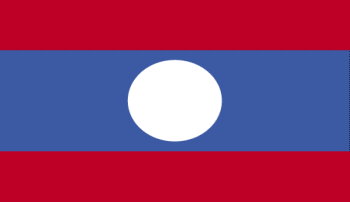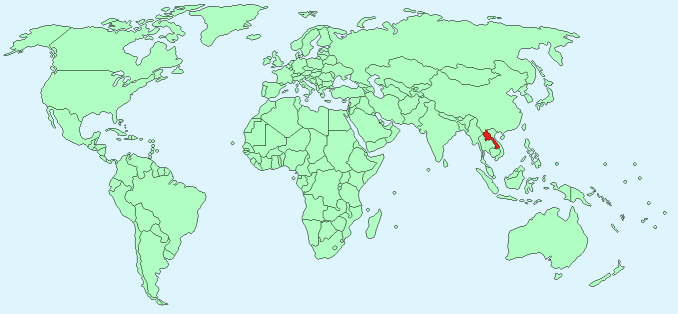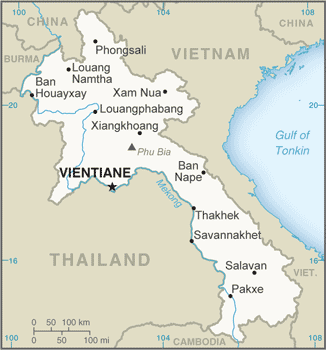Laos


Continent – Asia
Region – Eastern Asia
Size – 236,800 km²
Geography – mountainous plateaux and plains
Language – Lao (official), French, English
Religion – Buddhist 67%, Christian 1.5%, other and none 31.5%
Monetary Unit – Lao kip
Natural Resources – timber, hydropower, gypsum, tin, gold, gemstones
Agriculture – sweet potatoes, vegetables, corn, coffee, sugarcane, tobacco, cotton, tea, peanuts, rice; cassava (manioc, tapioca), water buffalo, pigs, cattle, poultry
Industry – mining (copper, tin, gold, gypsum), timber, agricultural processing, rubber, construction, garments, cement, tourism

Neighbouring Countries – Vietnam, China, Myanmar (Burma), Thailand, Cambodia
Population – 6,803,699 (2014 estimate)
Population Growth Rate – 1.59%
Average Life Expectancy – 63.51
Capital City – Vientiane (810,000)
Highest Mountain – Phu Bia (2,817m)
Longest River – Mekong (4,350 km)
Climate – tropical – warm to hot all year 15°C to 35°C
Yearly Rainfall – 120 cm (approx) mostly May to September
Plant Life – Vietnamese white pine, orchids, forest plants
Animal Life – Asian elephant, Indochinese tiger, leopard cat, marbled cat, gibbon, racoon, dog, antelope, snakes, lizards
Bird Life – 700 bird species including grebes, cormorants, darters, bitterns, herons, egrets, storks, ibises, spoonbills,ducks, geese, swans, osprey, hawks, kites and eagles
Harvard Reference for this page:
Heather Y Wheeler. (2015). Laos. Available: https://www.naturalhistoryonthenet.com/Facts_Figures/Country_Facts/laos.htm. Last accessed Monday, July 18, 2016
Facts and Figures Pages
